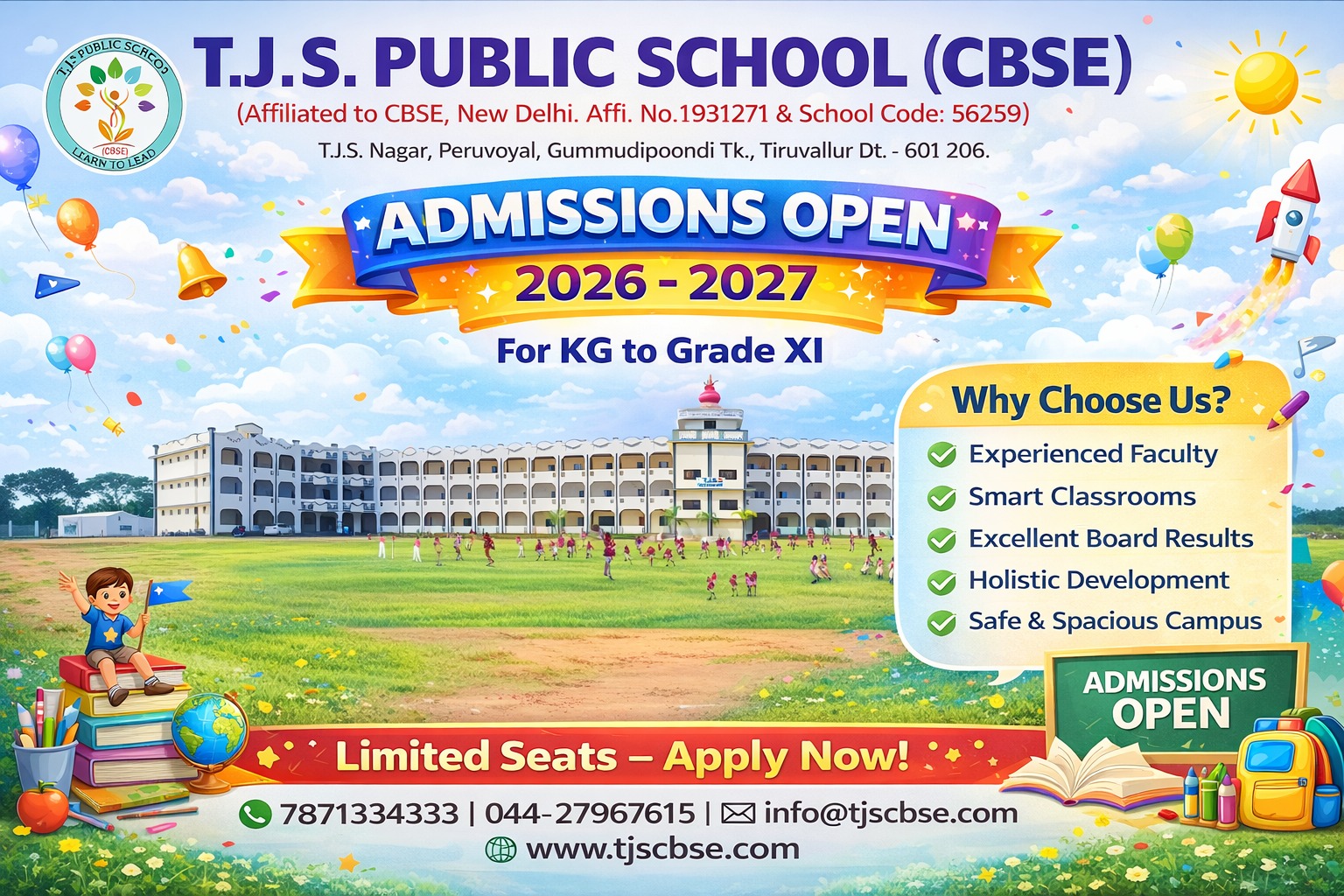Website Under Construction
Admissions Open 2026 – 2027
Sponsored by
S.V. Jayarama Mudaliar Lakshmiammal Educational Trust
✉ Email
info@tjscbse.com
info@tjscbse.com
🌐 Website
www.tjscbse.com
www.tjscbse.com
📍 Address
T.J.S Nagar, Peruvoyal Village,
Near Kavarapettai, Gummidipoondi Taluk,
Thiruvallur District – 601206
Call for Admission
T.J.S Nagar, Peruvoyal Village,
Near Kavarapettai, Gummidipoondi Taluk,
Thiruvallur District – 601206
.png)
.jpeg)
.jpeg)
.jpeg)
